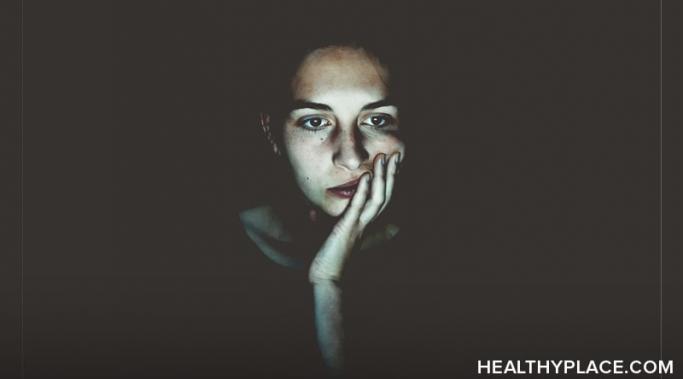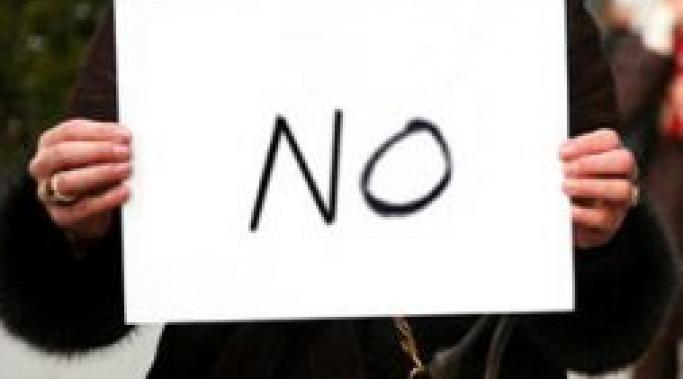Trauma is a difficult subject to discuss for some, especially when there is no "safe space" in which to have the conversation. I struggled with opening up about my traumatic past due to a lack of safe space to share these memories. In our lesbian, gay, bisexual, transgender, queer, intersex, asexual, etc. (LGBTQIA+) community, it can be difficult to find someone who can hold a safe space for us without judgment. This leads to many individuals settling for a therapist or counselor who truly isn't meeting their needs.
Managing Emotions
My anxiety presents itself to me in many physical forms. I can pinpoint the exact onset of an anxiety or panic attack if I pay attention to my body's signals, using a meditative body scan, to help prevent the discomfort.
My coping skills for anxiety used to consist of immersing myself in my community or visiting a friend. I would frequently mix and mingle with my community to lighten the burden anxiety would put on my shoulders. We are now six months into a pandemic that calls for us to isolate and distance ourselves from those who keep us grounded. This lockdown has led me to find creative ways to search out my community as I needed new coping skills for my anxiety.
How to help your child cope with autistic meltdowns is a question for many parents. Recently, on a message board for autistic adults and allies, a parent asked for some advice on helping her child with his autistic meltdowns. While these sorts of groups and message boards weren’t around when I was young, I sure wish my mom had done this sort of thing when I was a kid.
I'm not alone in using video games like "Animal Crossing" to cope with my mental illness. Ever since the shelter-at-home orders back in February, gamers have been purchasing the Nintendo Switch faster than they can be physically made. Video games became a form of escapism, and what was once a pastime became a coping mechanism for those stuck at home. While I’ve been trapped in my apartment in this pandemic, no Nintendo Switch game has been more useful for exploring and coping with my mental illness than "Animal Crossing."
I believe in the importance of self-care, especially for lesbian, gay, bisexual, transgender, and queer (LGBTQ) people. But I wasn't always this way. In fact, until this past year, I'd heard about the self-care movement but dismissed it as "narcissistic" or "selfish." I also thought that I didn't deserve to take care of myself when I could spend that time helping others.
tneely
Hurting other people, especially those we love, is inevitable. Living with mental health issues like Bipolar Disorder, PTSD, Depression, Addiction and other mood altering conditions, means we will also have to live with the fact that we hurt other people with greater frequency and sometimes with greater depth than those who are not. So if we are going to have healthy relationships, learning to acknowledge our slights and ask for forgiveness is essential.
tneely
I come from a large quirky family of addictive and codependent personalities that bred what seems like nothing but toxic relationships; relationships that ultimately did more to harm our mental, physical and emotional well-being than good (7 Basic Signs of a Toxic Relationship). I've never really considered us "dysfunctional" because we actually functioned quite well as long as everyone did their job and played their role. That job or role always being to pacify and enable the person with issues by protecting them from reality or the consequences of their actions. It looks a little something like this:
tneely
This time of year, everyone but me seems to be in the “New Year, New Me” spirit. Sure, the phrase is catchy enough; but I like who I am just fine and I have no interest in continuously obsessing about my weaknesses, failures and limitations. For me, self-acceptance is the way to grow.
On the surface, I don’t see anything wrong with having the desire to grow and improve yourself. And I know that the desire to be a better you doesn’t necessarily mean that you don’t like who you are at the moment. But for those of us struggling with self-acceptance, “self-improvement” can become just another hammer to beat ourselves over the head with.
tneely
Talking about holiday stress, this time last year (2011), I was a holiday wreck and my mental health was in shambles. I searched high and low for a reason, any reason, to celebrate the holiday season. But I was still recovering from a severe bout with post-traumatic stress and overlapping bipolar moods that left me anxious, agitated and unemployed. My relationships with nearly everyone important to me, including my wife and children, were suffering in some way. Nothing really made sense to me (least of all happiness) and my ability to reason had temporarily left me.
It was an odd feeling, being so pessimistic and not being able to help it. For the sake of my kids, I always managed to be an instant party in a box! But I could no longer counter my inner darkness by being the light of family photos and dinner parties. There was no energy left for coordinating gift exchanges or any other festivities. I just didn’t have it in me anymore.









